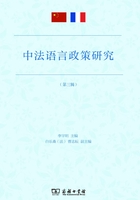
六、结语
多语制作为欧洲共同体的基本原则,旨在保证每一种语言拥有平等地位,保证语言和文化多样性得到应有的尊重。这样的政策有助于培养欧盟公民意识,即被理解、被接受和被尊重的感受。但是,迄今为止,欧盟多语制依然存在诸多尚未解决的问题,如人们的认识不统一,理论与实践严重脱节,实施效果离规划目标尚远等。随着欧盟的不断扩大及经济全球化,多语制的实行可能面临更多的挑战,因为21世纪以来,欧洲大陆的人口迁徙正在改变语言景观;欧盟公民的多语能力距离目标尚远(European Commission,2012a,2012b);英语作为通用语的地位愈渐增强(Lauridsen,2013)。克服这些困难需要超常的政治智慧和不懈的努力。
参考文献
[1] Bonotti, Matteo 2013 Politics without the Vernacular: Liberal Culturalism and the Language Policy of the European Union, Politics (33) .
[2] Council of the European Union 2014 Council Conclusions of 20 May 2014 on Multilingualism and the Development of Language Competences (2014/C 183/06).
[3] Crepaz, Katharina 2009 The EU Language Policies: between Multilingualism, Minority Language Protection, and English as the New Lingua Franca. Diplomstudium (Mag. Phil.) der Politikwissenschaft, Universität Innsbruck.
[4] Despagne, Colette 2013 Review of Promoting Plurilingualism: Majority Language in Multilingual Settings. TESOL Quarterly (47) .
[5] European Commission 2005 A New Framework Strategy for Multilingualism, Communication from the Commission to the Council, the European Parliament, the Economic Council and Social Committee and the Committee of the Regions[COM (2005) 596 Final]. http://eur-lex.europa.eu/LexUriServ/LexUriServ.do?uri=COM:2005:0596:FIN:EN:PDF (accessed on 2015-05-20).
[6] European Commission 2008 Multilingualism: An Asset for Europe and a Shared Commitment, Communication from the Commission to the European Parliament, the Council, the European Economic and Social Committee and the Committee of the Regions of 18 September 2008[COM(2008) 566 final].
[7] European Commission 2012a First European Survey on Language Competences, Final Report. http://ec.europa.eu/languages/eslc/index.html (accessed on 2015-05-20).
[8] European Commission 2012b Europeans and Their Languages, Report. Special Eurobarometer 386. http://ec.europa.eu/public_opinion/archives/ebs/ebs_386_en.pdf (accessed on 2015-05-20).
[9] Kymlicka, Will 1989 Liberalism, Community, and Culture, Clarendon Press.
[10]Kymlicka, Will 1995 Multicultural Citizenship, Clarendon Press.
[11]Kymlicka, Will 2001 Politics in the Vernacular, Oxford University Press.
[12]Lauridsen, Karen 2013 Multilingualism-A Necessary, Absent Component in Europe 2020?, A keynote speech held at the 2nd International Scientific Conference Sustainable Multilingualism: Research, Studies, Culture, Vytautas Magnus University, Kaunas, Lithuania, 27 September 2013.
[13]Locatelli, Stephanie 2010 Balancing Diversity and Efficiency in the EU’s Language Regime: E Pluribus Tres for the EU Patent?, Documenti IAI 1015. Paper prepared for the Istituto Affari Internazionali (IAI), August 2010.
[14]MENON Network EEIG 2008 Multilingualism: Between Policy Objectives and Implementation, Policy Department B: Structural and Cohesion Policies European Parliament, B-1047 Brussels.
[15]Phillipson, Robert 2003 English-only Europe? Challenging Language Policy, Routledge.
[16]Phillipson, Robert &Tove Skutnabb-Kangas 1997 Linguistic Human Rights and English in Europe, World Englishes (16) .
[17]Ruggieri, Francesca(ed.) 2014 Criminal Proceedings, Languages and the European Union: Linguistic and Legal Issues, Springer.
[18]Schmidt, Ronald Sr 2014 Democratic Theory and the Challenge of Linguistic Diversity, Language Policy (13).
[19]Shuibhne, Niamh Nic 2008 EC Law and Minority Language Policy: Some Recent Developments, Xabier Arzoz (ed.), 2008, Respecting Linguistic Diversity in the European Union, John Benjamin’s.
[20]Timmerman, Virginie 2014 What Language(s) for the European Union?, Synthesis, 23 September 2014.
[21]Wright, Sue 2000 Community and Communication: The Role of Language in Nation State Building and European Integration, Multilingual Matters.